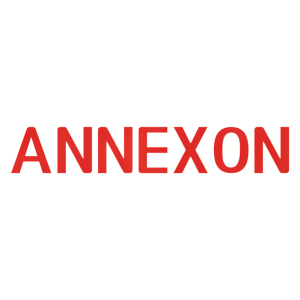Annexon Reports Phase 1 Results for ANX1502, its Oral Small Molecule Inhibitor of the Classical Complement Pathway
Target Levels of Active Drug Achieved in Healthy Volunteers with Oral Twice-Daily Dosing; Supportive Impact on Pharmacodynamic Biomarker of Complement Activity
ANX1502 Generally Well Tolerated Across Cohorts with No Serious Adverse Events
Tablet Formulation of ANX1502 Expected to Advance into Proof-of-Concept Study in Patients with Cold Agglutinin Disease (CAD) in 2024
BRISBANE, Calif., Dec. 20, 2023 (GLOBE NEWSWIRE) -- Annexon, Inc. (Nasdaq: ANNX), a clinical-stage biopharmaceutical company developing a new class of complement-based medicines for people living with devastating inflammation-related diseases, today reported results from the Phase 1 single ascending dose (SAD) and multiple ascending dose (MAD) healthy volunteer study of ANX1502, a first-in-kind oral, selective small molecule inhibitor that targets the active form of C1s responsible for propagating classical pathway activation in association with C1q. ANX1502 achieved target serum levels and demonstrated pharmacokinetic (PK) measures that support advancement into a proof-of-concept clinical study to assess pharmacodynamics (PD) and efficacy in patients with cold agglutinin disease (CAD) in 2024.
“After more than a decade of groundbreaking research targeting the early classical complement pathway, we are excited to have reached an important step in the clinical development of ANX1502, our first-in-kind small molecule complement inhibitor that we believe can have meaningful impact on a range of autoimmune conditions,” said Ted Yednock, Ph.D., chief innovation officer of Annexon. “We’re very encouraged by the results from our Phase 1 SAD/MAD trial showing that ANX1502 was well tolerated and achieved target drug levels with supportive impact on a key biomarker in healthy volunteers. Based on these data, we look forward to advancing a tablet formulation of ANX1502 into a proof-of-concept study in patients with CAD, which enables us to further explore larger opportunities in serious autoimmune diseases.”
The completed Phase 1 clinical trial is a randomized, double-blind, placebo-controlled SAD and MAD study to assess the safety, tolerability, PK and PD of ANX1502 liquid suspension formulation in healthy adults. The study evaluated single ascending doses of ANX1502 ranging from 25 mg to 1050 mg and multiple ascending doses of ANX1502 ranging from 200 mg twice-daily to 525 mg twice-daily. Results of the study were as follows:
- Dose-proportional PK and targeted levels of active drug were observed across both SAD and MAD cohorts
- Single doses of 525-1025 mg ANX1502 suppressed C4d serum levels in healthy volunteers with higher than median baseline C4d
- Across all doses evaluated, ANX1502 was generally well tolerated with mild to moderate treatment-emergent adverse events (TEAEs). The most frequent TEAEs were gastro-intestinal, which included nausea, emesis and diarrhea.
- No serious adverse events were reported, and there were no significant clinical or lab findings.
Following the successful completion of the proof-of-concept study in patients with CAD, Annexon intends to evaluate ANX1502 in serious complement-mediated autoimmune diseases with the aim of providing enhanced efficacy and offering convenient dosing administration for long-term treatment of chronic conditions.
About Annexon
Annexon Biosciences (Nasdaq: ANNX) is a clinical-stage biopharmaceutical company utilizing a distinct scientific approach to stop C1q and all inflammatory aspects of classical complement pathway activation before it starts. As the only company solely focused on shutting down C1q, Annexon is developing a fit-for-purpose pipeline of therapeutics designed to provide meaningful benefits across multiple diseases of the body, brain, and eye. With proof-of concept data in both Guillain-Barré syndrome and geographic atrophy, Annexon is rigorously advancing its mid-to late-stage clinical trials to bring their potential treatments to patients as quickly as possible. To learn more visit annexonbio.com.
Forward Looking Statements
This press release contains forward-looking statements within the meaning of Section 27A of the Securities Act of 1933, as amended, and Section 21E of the Securities Exchange Act of 1934, as amended. In some cases, you can identify forward-looking statements by terminology such as “aim,” “anticipate,” “assume,” “believe,” “contemplate,” “continue,” “could,” “design,” “due,” “estimate,” “expect,” “goal,” “intend,” “may,” “objective,” “plan,” “positioned,” “potential,” “predict,” “seek,” “should,” “suggest,” “target,” “on track,” “will,” “would” and other similar expressions that are predictions of or indicate future events and future trends, or the negative of these terms or other comparable terminology. All statements other than statements of historical facts contained in this press release are forward-looking statements. These forward-looking statements include, but are not limited to, statements about: potential advancement of ANX1502 into a proof-of-concept clinical study in patients with CAD; the anticipated timing of the proof-of-concept trial in ANX1502; potential advancement of a tablet formulation of ANX1502; the potential for meaningful impact on autoimmune conditions; continued development of ANX1502; the potential benefits from treatment with anti-C1q therapy; and continuing advancement of the company’s portfolio. Forward-looking statements are not guarantees of future performance and are subject to risks and uncertainties that could cause actual results and events to differ materially from those anticipated, including, but not limited to, risks and uncertainties related to: the ongoing off-treatment follow-up portion of the ARCHER trial and final results from the ARCHER trial; the company’s history of net operating losses; the company’s ability to obtain necessary capital to fund its clinical programs; the early stages of clinical development of the company’s product candidates; the effects of public health crises on the company’s clinical programs and business operations; the company’s ability to obtain regulatory approval of and successfully commercialize its product candidates; any undesirable side effects or other properties of the company’s product candidates; the company’s reliance on third-party suppliers and manufacturers; the outcomes of any future collaboration agreements; and the company’s ability to adequately maintain intellectual property rights for its product candidates. These and other risks are described in greater detail under the section titled “Risk Factors” contained in the company’s Annual Report on Form 10-K and Quarterly Reports on Form 10-Q and the company’s other filings with the SEC. Any forward-looking statements that the company makes in this press release are made pursuant to the Private Securities Litigation Reform Act of 1995, as amended, and speak only as of the date of this press release. Except as required by law, the company undertakes no obligation to publicly update any forward-looking statements, whether as a result of new information, future events or otherwise.
Investor Contact:
Monique Allaire
THRUST Strategic Communications
monique@thrustsc.com
Media Contact:
Sheryl Seapy
Real Chemistry
949-903-4750
sseapy@realchemistry.com






